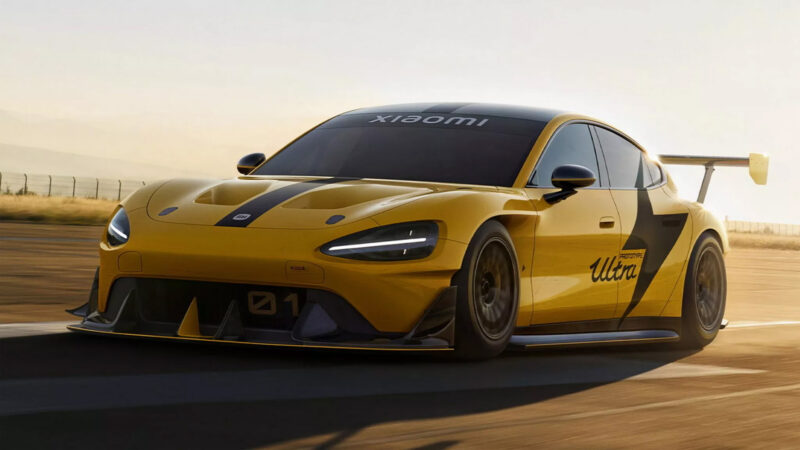Xiaomi‘s automotive division is facing significant challenges as sales of its electric vehicles have declined for three consecutive weeks, according to insurance registration data provided by China Automobile Dealers Association.
From weeks 16 to 19 of 2025, Xiaomi’s vehicle sales (including SU7 and SU7 Ultra models) dropped from 7,200 to 5,200 units. The standard SU7 model specifically saw weekly sales fall from 6,700 units to 4,700 units.
This sales decline comes amid what Xiaomi founder Lei Jun described as “the most difficult period since founding Xiaomi” in a May 10th Weibo post.
Trust Crisis Following Controversies
The company is currently weathering a severe trust crisis triggered by multiple controversies:
- Carbon fibre hood controversy: The SU7 Ultra’s optional carbon fibre hood, priced at 42,000 yuan (5800 USD), was marketed as having “dual air ducts directing airflow to the wheel hubs for cooling.” However, owners discovered it had neither air-guiding functionality nor improved cooling performance compared to the standard aluminium hood, while only reducing weight by 1.3 kg.
- Power limitation issue: A May OTA update restricted the maximum horsepower from 1,548 to 900 hp, requiring users to achieve specific track performance metrics to unlock full power. This contradicted Xiaomi’s initial marketing that emphasised the SU7 Ultra’s power as a key selling point, claiming a top speed of 350 km/h and positioning it as “the fastest four-door production car on earth.”
- Safety concerns: In late March, a yellow Xiaomi SU7 Ultra crashed while driving at high speed, followed by another high-profile highway accident that shocked the nation, prompting Xiaomi to prioritise safety measures.
Customer Protests and Legal Action
The controversies have sparked significant backlash:
- Over 30 prospective SU7 Ultra owners protested at a Beijing delivery centre with banners claiming “false advertising”
- More than 300 owners formed rights protection groups, demanding “refund plus triple compensation”
- Some customers have hired lawyers to initiate class action lawsuits
Industry analysts note that over 50% of SU7 Ultra owners are first-time buyers of vehicles priced above 500,000 yuan (69,500 USD), making them particularly sensitive to performance specifications and marketing claims.
Regulatory Response
These incidents have prompted broader regulatory action in China’s electric vehicle industry:
- In early April, the Ministry of Industry and Information Technology issued new battery safety requirements
- In mid-April, the ministry cracked down on autonomous driving marketing claims, causing many manufacturers to rebrand from “high-level autonomous driving” to “driver assistance”
- On May 8, the ministry began soliciting opinions on mandatory national standards for car door handles
While Xiaomi has apologised and temporarily halted the controversial update, offering compensation including 20,000 points to affected customers, many owners remain unsatisfied and continue to demand full refunds without penalties.
Industry observers suggest that Xiaomi’s challenges highlight a common industry problem of prioritising marketing over technology, and that the company’s high-profile controversies are driving broader industry reforms in China’s electric vehicle sector.
Follow us for ev updates
